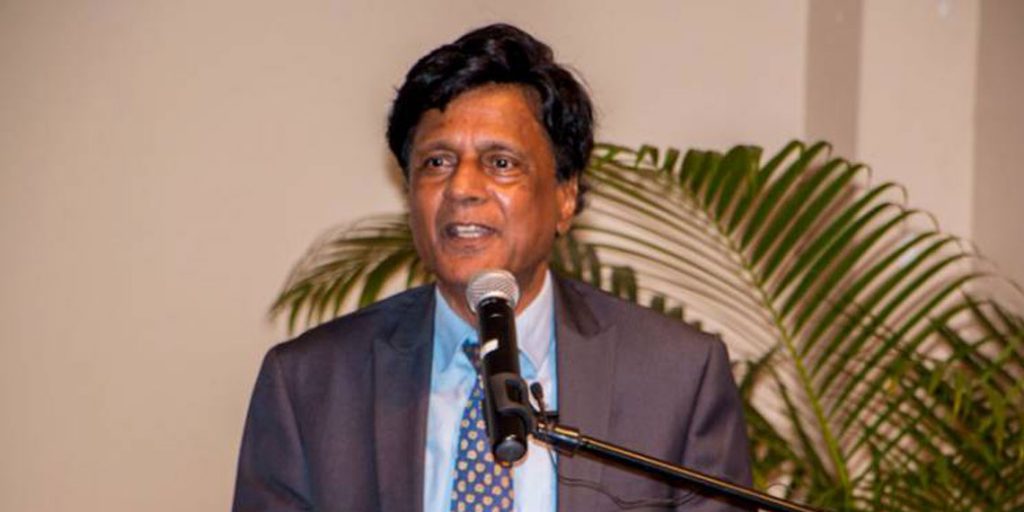ROAR of Ravi Dev
The anthropologist, MG Smith, was criticised on his ‘culturally plural society’ model he applied to several Caribbean societies including Guyana. “Too static”, it was claimed: it merely described what existed and did not suggest a mechanism of change. He retorted tartly he’d pointed out that invariably the different cultural segments were ‘differentially incorporated’ into the power relations of their societies and the angst arising out of this fact, in and of itself, initiated change.
I’ve always felt that the political scientists and economists who pontificate on our national policies, ignore MG’s insight to our general peril. As citizens of states that promised equality, their lived experiences inevitably determined how they felt about the attainment (or not) of that egalitarian promise. Their experiences were filtered through their cultural lenses and it should not have surprised any, if the several groups (defined culturally here as “Afro, Indo, Mixed, Amerindian or Chinese Guyanese) are differentially into the power structure, political consciousness would cleave along cultural (read ethnic) lines.
After decades of focusing on an economistic notion of equality, there is still not an appreciation of the need for cultural equality also. There are some that posit that if we have economic equality among the various ethnic groups, our troubles would be over. I’d like to vehemently disagree. We are not homo economicus…but more like “homo culturalicus”. Each group in Guyana has an economic elite but we have not seen these elites making common cause over the past half century.
Part and parcel of the ‘power relations’ is who gets to define what is the national culture – in the Caribbean, the Brown Creole Elite – to which all groups have to genuflect. And it is the differential incorporation of the various cultural groups in this equation that our policies on “multiculturalism” must address. Multiculturalism demands that society present a full range of prospects, membership, and respect to all its members – regardless of cultural and religious differences –while also creatively accommodating them in a fashion that is both morally persuasive and practically effective for the majority of society.
I would suggest that we have to start from the very top: the Ministry of Culture. The name itself – “Culture” – suggests a singular, monolithic, “taproot culture” that is being promoted. We can do worse than change the name of this ministry forthwith to “Ministry of Multiculturalism”: its mission would be much clearer. While Guyana has never bothered to come up a program on “multiculturalism”, there is the ritualistic incantation of Guyana being “multi-ethnic” by the authorities. And, maintaining the “One Nation; One People One Destiny” exhortation of the national motto, they ironically chant, “Unity in Diversity”.
The question is how do we make this aspiration more concrete? How do we measure this ‘unity’ and how do we ensure that it does it is not a stalking horse for assimilation through the back door? We have spoken before of seeing identity as “rhizomatic” or multiple rather than “tap rooted” and single and suggest that our motto be “Unity in Diversity through Equality in Diversity”. One definition of ‘multiculturalism’ suggests it is ‘A systematic and comprehensive response to cultural and ethnic diversity with educational, linguistic, economic and social components and specific institutional mechanisms”. This suggests areas in which we initially pursue equality.
Now we want to emphasise we are not emphasising any ‘separatist ideal’ in which each group live in hermetically sealed enclaves. We are rather suggesting that the ‘equal treatment in culture’ imperative – if implemented and becomes real – will eliminate the barriers of hauteur and exclusion, which inevitably trigger reactions of resistance. We believe when we deal with each other as equals there would be the inevitable cross-cultural fertilization (in all directions) and not one-way that is seen as top down.
With the State out of the ‘culture’, it could instead engender and promote a feeling of “Guyaneseness” among our people through the conscious construction of a democratic state – the creation of conditions where we are all treated as one, equally, by the state. Equality of opportunity; human rights, encouragement of diversities, due process; justice and fair play and rule of law may seem dry compared to the warmth of the blood ties of “nation”, but they can engender the unity of public purpose and the recognition of individual worth where we can be proud of our common citizenship.
Citizenship of Guyana has to become something that has concrete meaning to all of us.
